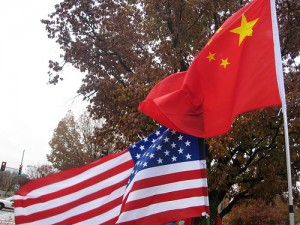by Tony Wikrent
Trump not violating any law
‘He who saves his Country does not violate any Law’
Joe DePaolo, May 4th, 2025 [mediaite.com]
What is Stephen Miller trying to accomplish in Portland and Chicago?
Dan Froomkin, October 7, 2025 [presswatchers.org]
…as we have all learned over the last several months, Stephen Milller is Trump’s operational lead – if not his puppeteer. Miller, the white nationalist who is Trump’s deputy chief of staff in charge of increasingly everything, is the one who makes things happen in Trump’s White House.
Unlike Trump, Miller is not stupid, nor does he suffer from dementia. He knows full well that what Trump is saying is not true. (He may well be the one encouraging Trump’s demented fantasies.)
So we know the answer for him is No. 3: He’s knowingly, intentionally lying.
And given what we know about him, from his own words, it’s not hard to figure out why: He wants a national cleansing.
He wants MAGA and the state to wipe out the opposition. He wants, in short, a civil war. And he thinks he can start one in Portland and Chicago.
“The issue before [u]s now is very simple and clear,” he tweeted on Saturday. “There is a large and growing movement of leftwing terrorism in this country. It is well organized and funded. And it is shielded by far-left Democrat judges, prosecutors and attorneys general. The only remedy is to use legitimate state power to dismantle terrorism and terror networks.” ….
New York Times columnist Thomas Edsall (with whom I have had my differences) asked several experts about Trump and Miller’s intentions. The answers, published this morning, were revelatory.
“If Trump, Miller & Co. are not hoping to provoke violence, they sure act as if they are,” Sean Wilentz, a professor of history at Princeton, wrote in an email to Edsall. “It’s not simply about provoking violence, though, but inflicting it, as ICE has been doing all along. The spiral of violence usually begins with official violence.”
Barbara Walter, a political scientist at the University of California-San Diego and the author of “How Civil Wars Start, explained:
”The quickest way to piss people off is to send soldiers into their neighborhoods especially when there’s no reason for them to be there. It’s inherently provocative, and Trump and his team understand this. Research by the political scientist Robert Pape shows that the single most powerful predictor of suicide terrorism is the presence of foreign troops on local soil. People hate, hate, hate that. They hate the humiliation, the powerlessness, the feeling of being occupied.
“Once citizens begin to view their own government’s security forces as an occupying army, violence becomes inevitable. Trump’s team knows this. In fact, that’s the point. They are not trying to restore order; they’re trying to trigger the very unrest that would justify further crackdowns. In the end, violence serves their ultimate end: They want to create the illusion of disorder so they can tighten control and stay in power indefinitely.” ….
John Harwood, Oct 09, 2025 [Zeteo]
Over four decades as a journalist, I’ve covered seven presidents, 20 Congresses, and thousands of staffers. I’ve never encountered one as sinister as Stephen Miller.
I see it in the darkness of his eyes, the venom of his words, the malevolence of his affect. And also by the deliberate brutality of his campaign from the White House to deport immigrants and crush dissenters….
The Dilemma: Do or Do Not — In the mind of our Stephen Millers, the time may be now
Thomas Neuburger, Oct 08, 2025 [God’s Spies]


